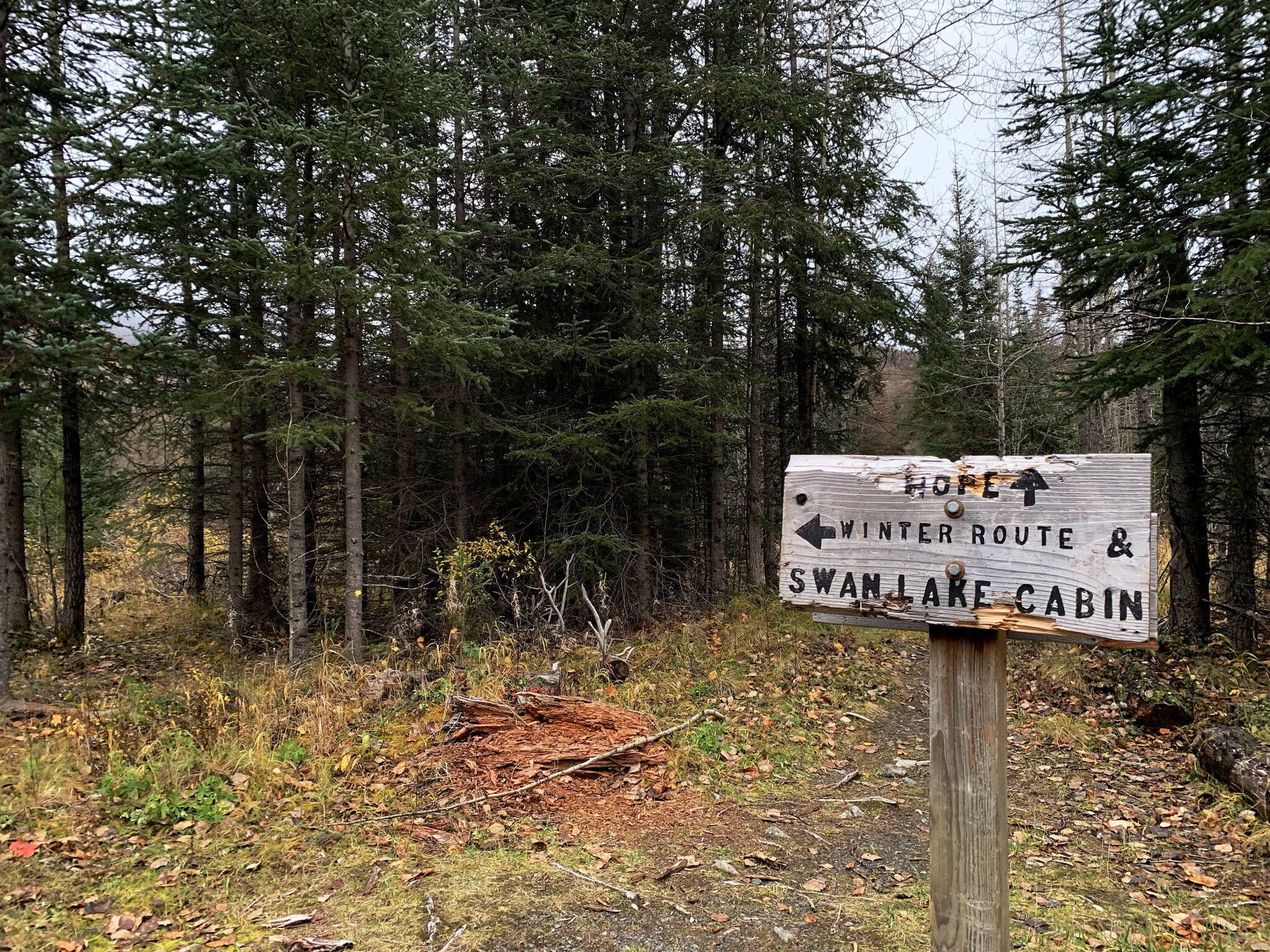As the U.S. Forest Service prepares to expand the quality and quantity of Alaska’s public use cabins, cabin users are asking for a balance of accessibility and diversity of amenities. Monday was the deadline to submit feedback on various sites proposed by the U.S. Forest Service for new public use cabins or for renovations to existing cabins.
The Infrastructure Investment and Jobs Act made available to the U.S. Forest Service $37.75 million for the improvement of recreation infrastructure on national forests and grasslands. Of that, $14.4 million is designated for the Tongass and Chugach national forests.
Republican U.S. Sen. Lisa Murkowski said in a Sept. 26 press release announcing the funds that Alaska “is home to the best outdoor opportunities in the world, and recreation is a key part of our economy.”
“To maintain and grow this world-class industry, we need infrastructure that is modern, safe, and accessible,” Murkowski is quoted as saying in the release.
An interactive map of potential project sites shows that most projects in the Chugach National Forest would see work begin in 2024. That map, maintained by the U.S. Forest Service under the U.S. Department of Agriculture, shows nine proposed projects in the Kenai Peninsula Borough as well as a handful of others in the Portage area.
Peninsula projects include the proposed construction of new cabins in the Long Lake area of Seward, the Rainbow Lake area of Cooper Landing, at Carter Lake, near the Tenderfoot and Porcupine campgrounds and along the Iditarod National Historic Trail.
U.S. Forest Service data show that, over the last four years, the Crow Pass Cabin, located off of the Crow Pass Trail north of Girdwood, consistently has the highest occupancy rates. Unlike the other 41 public use cabins located in the Chugach National Forest, the Cross Pass Cabin only operates for part of the year due to avalanche risk.
Of the cabins open year-round, the Dale Clemens Cabin reported the highest occupancy rate. Over the last four years, that cabin has been booked an average of 276 nights each year. The cabin, which operates 365 days per year, overlooks Seward and Resurrection Bay and resembles a tree house.
The data show that most of the Chugach National Forest’s public use cabins are occupied less than half of the year. However, almost every cabin has seen an increase in use over the last four years. Data provided by the Forest Service only reflect the number of successful bookings.
Across multiple proposed cabin locations, multiple public comments called for more cabins with lofts and said new cabins should balance accessibility with remoteness. On the proposed construction of a cabin at Porcupine Campground in Hope, for example, commenters said there is enough demand in the area to warrant more cabins and questioned the site’s proximity to the campground.
“There are already so many places for families to stay ‘on the grid,’” wrote one commenter. “These resources need to be put towards the ‘backcountry experience’ – providing incentive to recreate in the wilderness and far from the parking lot. This concept should be central to the process of siting all of these cabins/(facilities) – perhaps with the exception of a few cabins being accessible to all.”
Others said putting the cabin near the campground makes it more accessible to people who might not be able to hike into a site.
“This would be a good location for a cabin, particularly an ADA accessible cabin,” wrote another, referring to the Amercans with Disabilities Act.
Project scopes also include proposed renovations to some of the forest’s existing recreation infrastructure, such as the Crescent Lake Cabin. That cabin, originally constructed in 1963, is located along the end of the Crescent Creek Trail and “has seen a lot of use” since it was built, per the U.S. Forest Service.
Under the current project proposal, the existing cabin would be moved closer to the lakeshore. However, many commenters said they would prefer the construction of a new cabin in addition to the existing cabin, as opposed to taking the current structure down completely.
“I support building another cabin here, but don’t tear down the old one,” says one comment. “It is a great (cabin) and bigger groups can rent both. Just have the new one spaced out far enough away that there can be different groups.”
Per the program project site, not all of the more than 50 cabin projects proposed will be funded. The proposed projects are based on public input collected by the Alaska Region’s forest and district across multiple years.
“The agency seeks to align cabin projects with the needs and wants of the public, provide increased recreation opportunities to meet demand, and make use of local labor, wood, mills, businesses, contractors, and partners where feasible,” the site says.
The additional comments submitted prior to Monday will be used by the U.S. Forest Service to help develop a five-year plan that will lay out planned use of the money made available through the Infrastructure Investment and Jobs Act.
More information about the planned expansion of public use cabins and other recreational facilities in the Chugach National Forest can be found on the Forest Service website at fs.usda.gov.
Reach reporter Ashlyn O’Hara at ashlyn.ohara@peninsulaclarion.com.

